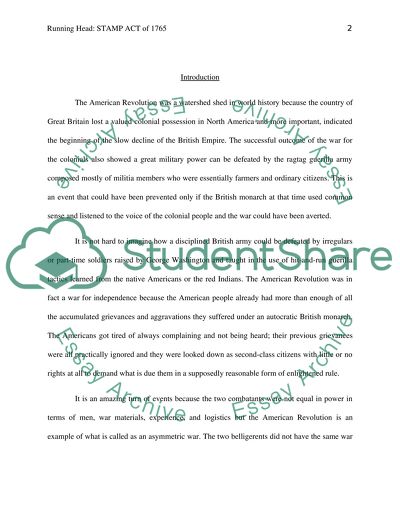Cite this document
(“Stamp Act of 1765. The single event most contributory to the American Essay”, n.d.)
Stamp Act of 1765. The single event most contributory to the American Essay. Retrieved from https://studentshare.org/history/1493888-what-single-event-parliamentary-act-or-situation
Stamp Act of 1765. The single event most contributory to the American Essay. Retrieved from https://studentshare.org/history/1493888-what-single-event-parliamentary-act-or-situation
(Stamp Act of 1765. The Single Event Most Contributory to the American Essay)
Stamp Act of 1765. The Single Event Most Contributory to the American Essay. https://studentshare.org/history/1493888-what-single-event-parliamentary-act-or-situation.
Stamp Act of 1765. The Single Event Most Contributory to the American Essay. https://studentshare.org/history/1493888-what-single-event-parliamentary-act-or-situation.
“Stamp Act of 1765. The Single Event Most Contributory to the American Essay”, n.d. https://studentshare.org/history/1493888-what-single-event-parliamentary-act-or-situation.


